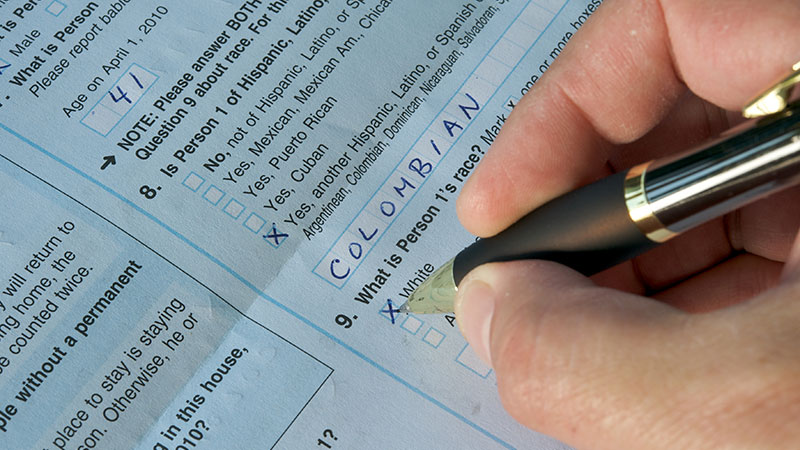
With border camps drawing scrutiny, the threat of federal immigration raids in major U.S. cities, and a recent focus on the 2020 census, it’s likely those who feel most threatened will be afraid to respond to the once-a-decade collection of individual data.
For months, the census has been embroiled in controversy over whether to include a citizenship question. When a U.S. Supreme Court ruling blocked the politically charged maneuver, President Trump lingered over the possibility for weeks before abandoning his effort.
The damage is done. But those of us in the nonprofit world can play an essential role in ensuring an accurate count by making people feel safe in responding. That’s why almost 100 foundations have joined to give voice to immigrants, refugees, and racial and ethnic minorities likely to be missed or to actively avoid the count.
Getting a fair and accurate count has never been easy. While the first census in 1790 was deemed a success, many – including George Washington and Thomas Jefferson – expressed skepticism over the final count, expecting a much higher number. During the 2010 census, people of color were undercounted, causing a decade of reduced resources for communities where they live, which are increasingly rural and suburban. The last census undercounted black residents by at least 800,000, and more than a third of all children under 5 who were undercounted were Latino.
Census data form the basis for decisions affecting everyone. More than 800 billion federal dollars a year go to states and localities for emergency response, healthcare, education, roads and bridges, and much more.
The stakes for individuals and their local communities are high, and the nonprofit sector is all in. When the Trump administration announced it would attempt a citizenship question, 30 foundations filed an amicus brief in the census case before the nation’s high court. Our brief focused on the importance of an accurate count to aid work that all of us support – whether to effectively set priorities, to conduct research, to target investments, or to monitor how we address emerging needs.
The framers of the Constitution called for a decennial census and chose population to be the basis for allocating political power – not income, race, land ownership (which was the historical practice of other nations), or even citizenship. But this count of every person living in the United States is much more than a way to determine representation. The federal government appropriates hundreds of billions a year based on the census data and business, industry, and philanthropy spend billions more. Again, all of this makes a fair and accurate census count crucial.
Here are some additional steps foundations and the nonprofit organizations we work with are taking to ensure everyone is counted:
- Supporting direct outreach and public education to improve response rates, particularly within socially and culturally isolated communities.
- Assisting businesses, state and local elected officials, and faith-based groups that work with fragile populations.
- Providing grants to communities in states with limited philanthropy and potentially large numbers of hard-to-count populations, including Latinos, American Indians, and African Americans.
Federal funding for the 2020 census is running well below funding levels for previous counts. Reduced federal funding is especially worrisome because mail-in response rates have been declining – from 78 percent in 1970 to 63 percent in 2010. The Census Bureau requires more, not fewer, resources to conduct in-person outreach to contact hard-to-count households that do not respond to initial census mailers.
This year, for the first time, respondents also can complete the census online, adding new challenges for ensuring that even those without easy access to the internet complete their questionnaires. This online form creates a new set of risks, from basic functionality to connectivity failures to cybersecurity threats.
As a country, we must do all we can to make sure that everyone in the United States – regardless of citizenship, race, ethnicity, or income level – feels safe participating in the census. We must work across every community – particularly those most susceptible to undercounts – to get the word out about the importance of responding.
An accurate census benefits all of us – and moves us closer to our ideals as a nation.
